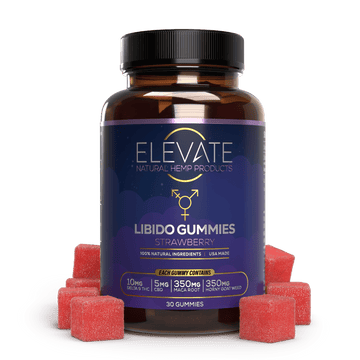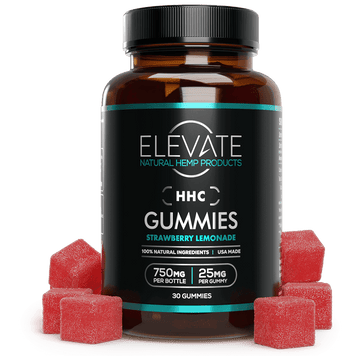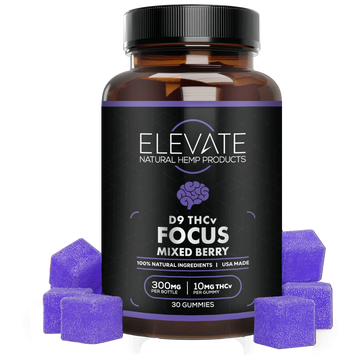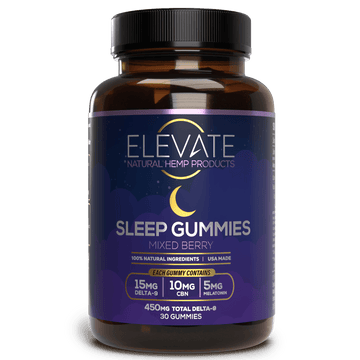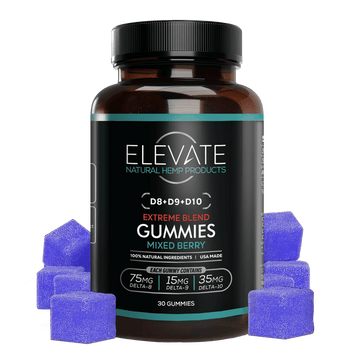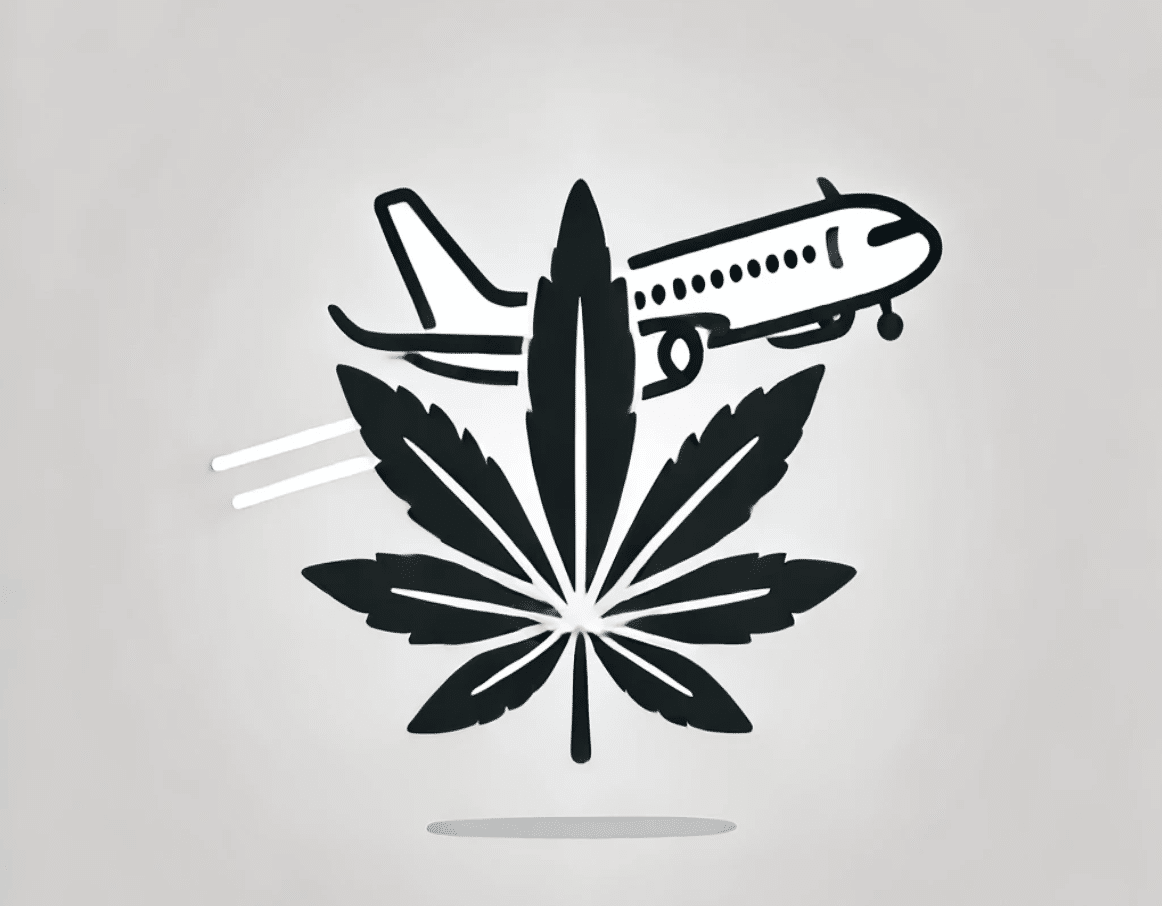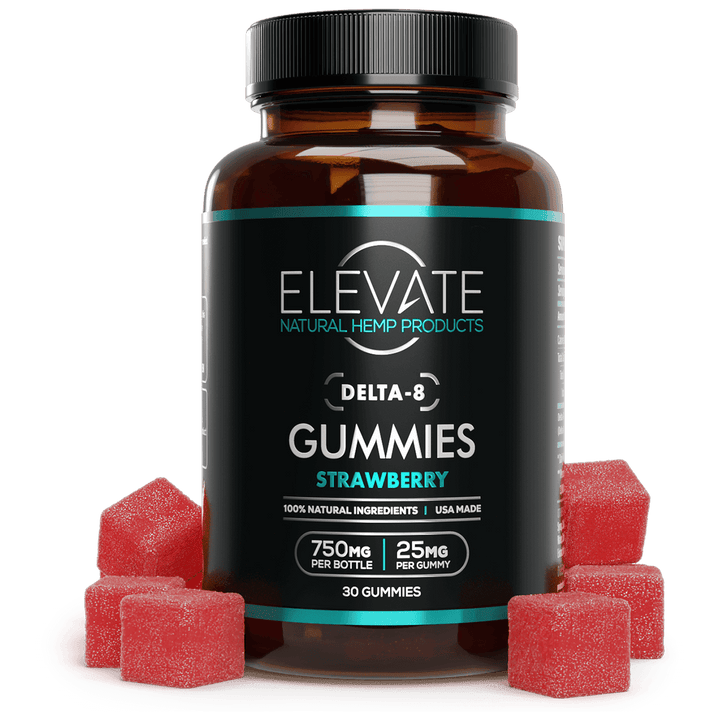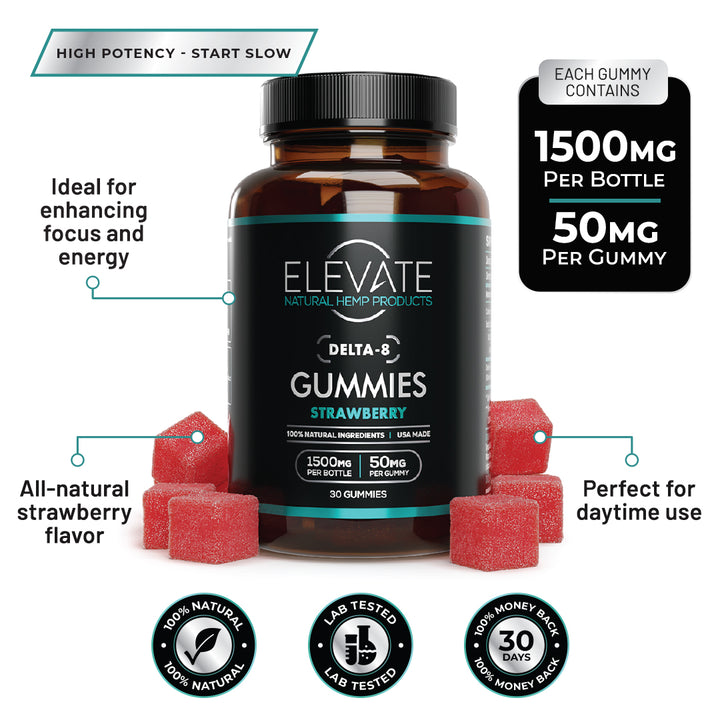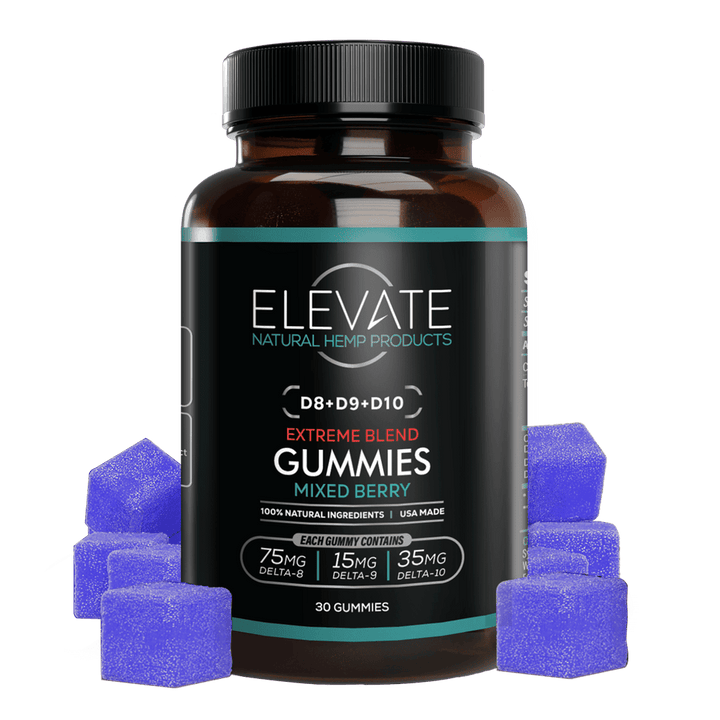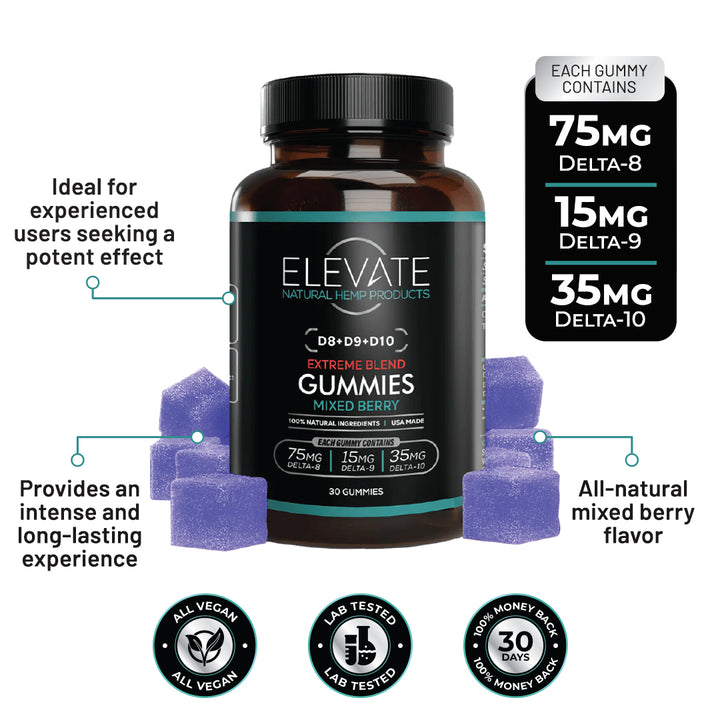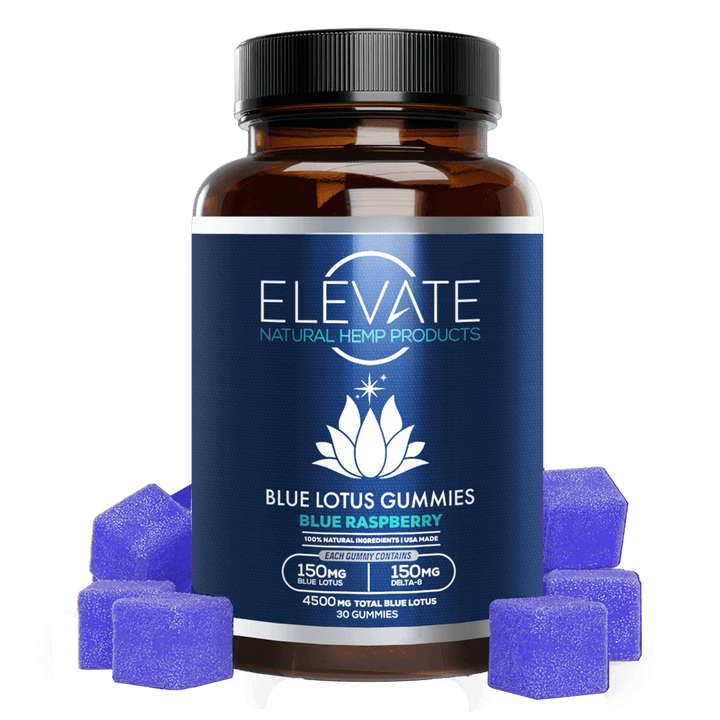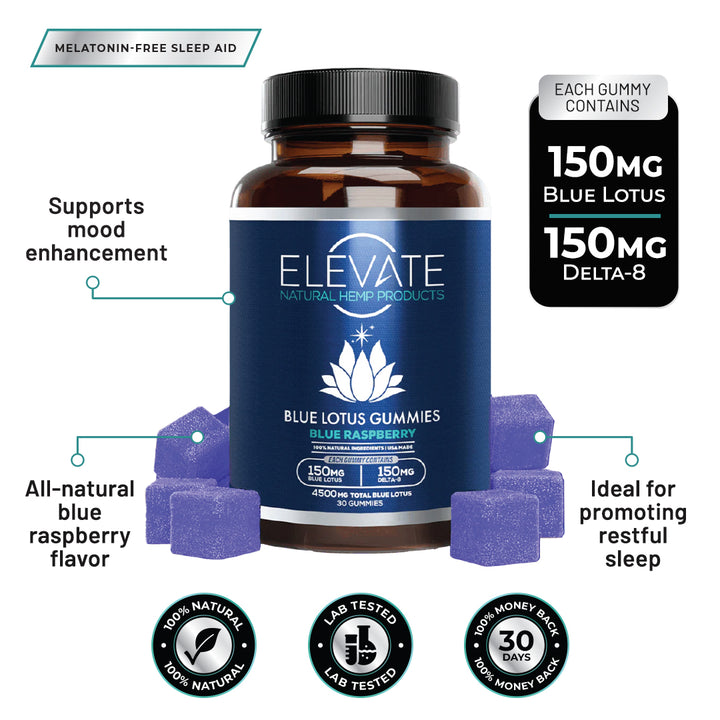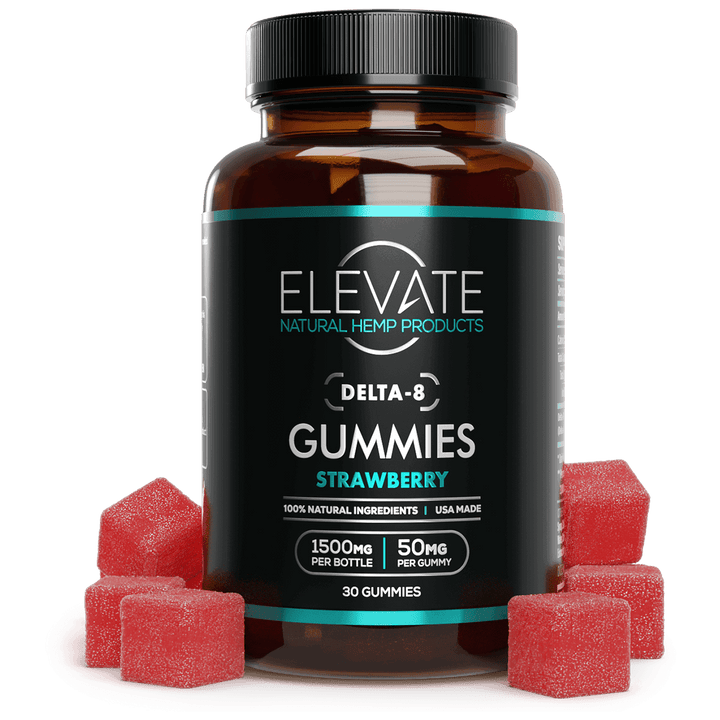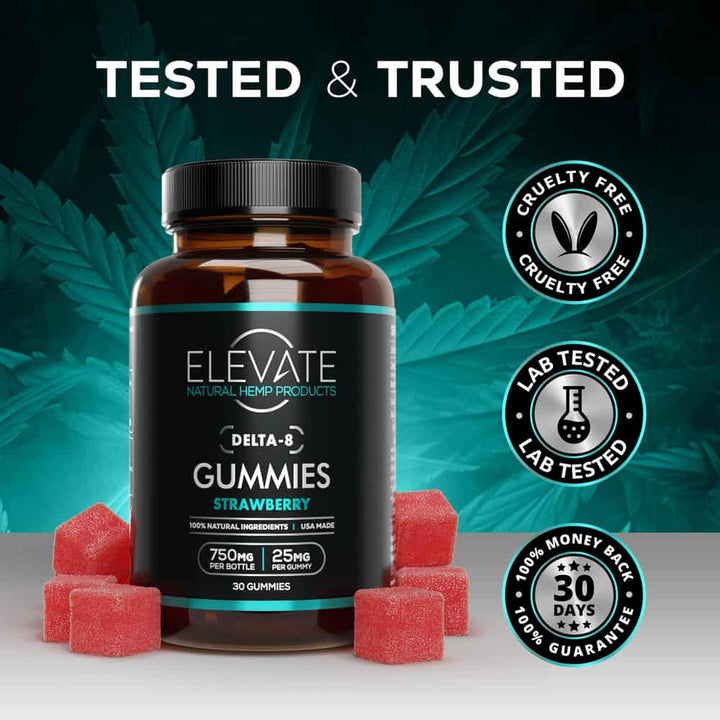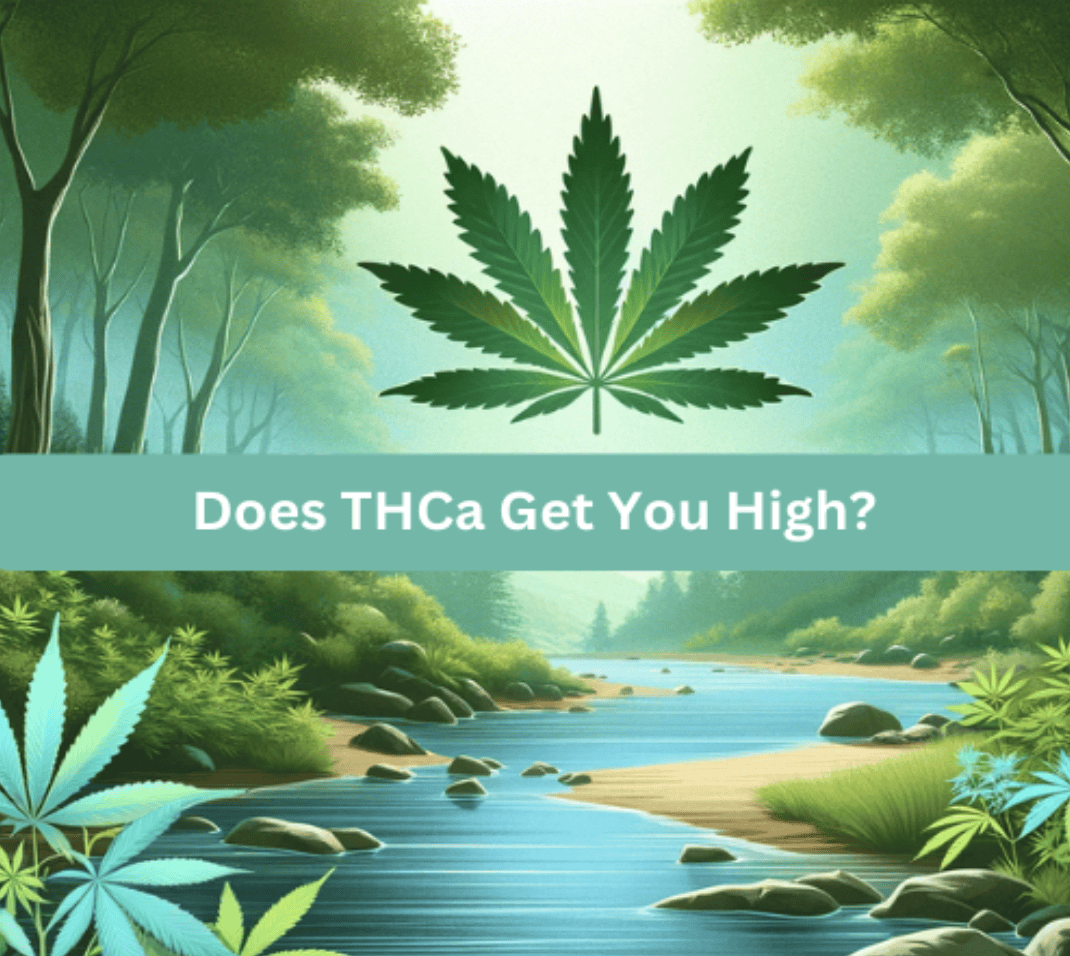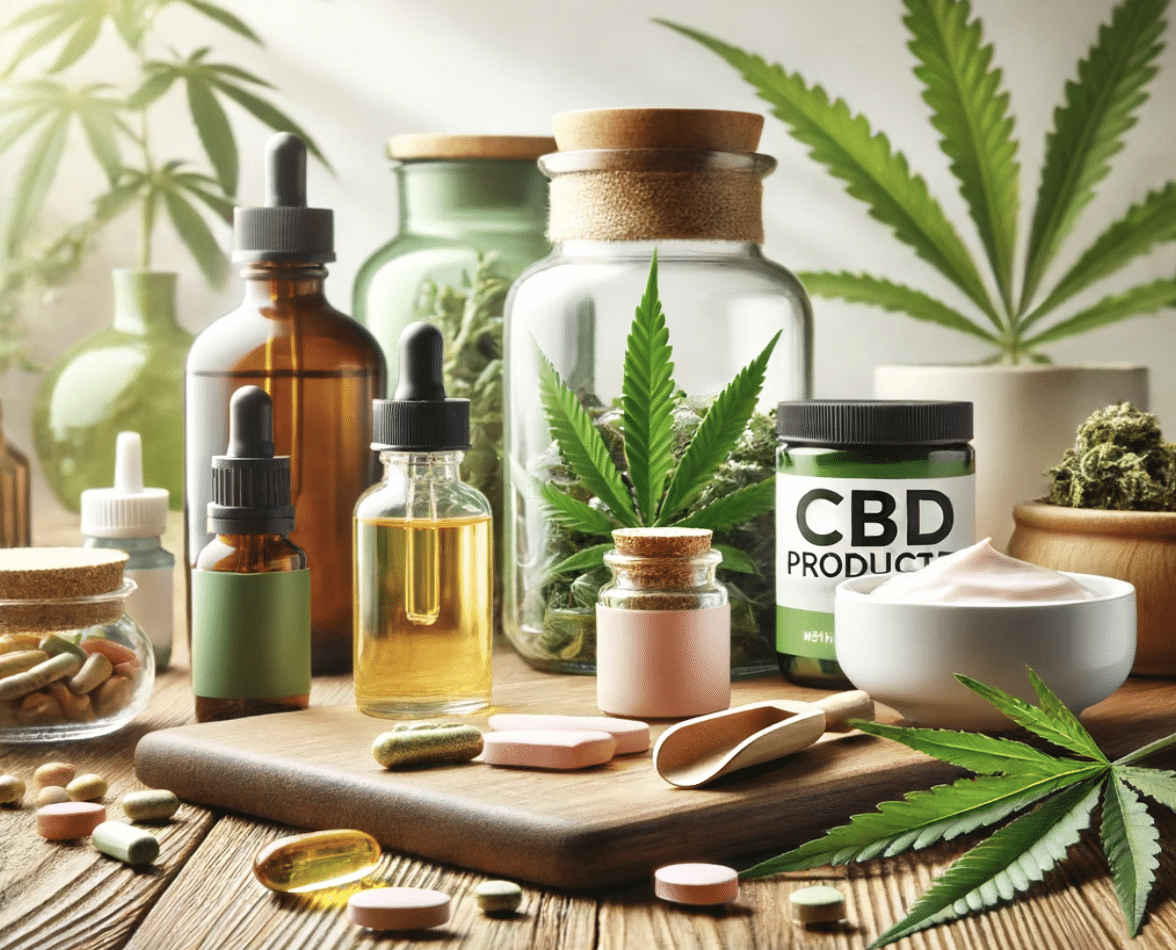You’ve booked your flight, packed your best outfits, and triple-checked for your passport. But as you’re doing a final sweep, you pause at your nightstand, looking at your go-to CBD oil or gummies. If CBD is a non-negotiable part of how you manage stress or get a good night's sleep, leaving it behind simply isn't an option. The great news is that you don’t have to. Flying with CBD is entirely possible, but it requires a bit of know-how. Before you toss that bottle in your bag, let’s cover the key rules you need to follow for a hassle-free trip.
Extracted from the hemp plant, CBD is known for its potential therapeutic benefits, ranging from pain relief to anxiety reduction, all without the psychoactive effects associated with THC. As more people incorporate CBD into their daily routines, the question of traveling with it, especially flying, becomes increasingly relevant. Understanding the regulations surrounding CBD when you’re on the move is crucial to avoid any legal hiccups and ensure a smooth journey. This article aims to provide a comprehensive guide on the legal status of CBD, particularly when it comes to air travel, to help you navigate this complex landscape with confidence.
What is CBD?
CBD, or cannabidiol, is one of the many cannabinoids found in cannabis plants. CBD does not produce a "high" and is valued for its potential health benefits. These benefits include reducing inflammation, alleviating pain, decreasing anxiety, and improving sleep quality, making it a popular choice for those seeking natural remedies without mind-altering effects. The key difference between CBD and THC lies in their effects on the brain. While THC binds to receptors in the brain to create euphoria, CBD works differently, potentially influencing the body's endocannabinoid system to promote balance and wellness. This makes CBD a versatile and appealing option for many looking to improve their health and well-being naturally. CBD products come in various forms, such as oils, capsules, edibles, and topical creams. This variety allows users to choose the best method for their needs, whether they prefer the quick absorption of sublingual oils or the convenience of pre-measured capsules.
Legal Status of CBD
When it comes to the legality of CBD, it’s essential to recognize that laws can vary significantly from one country to another and even within different states or regions of a country. Let’s break down the legal status of CBD in various contexts to give you a clearer picture.
Overview of CBD Legality in Different Countries
Globally, the legal status of CBD is a patchwork of regulations. In some countries, like Canada and much of Europe, CBD is legal and widely available. In others, the legality is less clear or outright restricted. For instance, in some Asian and Middle Eastern countries, CBD is still considered illegal due to its association with cannabis.
Legal Status of CBD in the United States
In the United States, the legal landscape of CBD has evolved significantly, especially with the passing of the 2018 Farm Bill. This legislation removed hemp (defined as cannabis containing less than 0.3% THC) from the list of controlled substances, effectively legalizing CBD derived from hemp at the federal level. However, it’s important to note that the legality of CBD can still vary from state to state. Some states have fully embraced the federal guidelines, allowing the sale and use of hemp-derived CBD products. Others have more restrictive laws, and a few still consider all cannabis-derived products, including CBD, to be illegal. This variation means that while you can purchase CBD legally in many states, it’s always wise to check local regulations if you plan to travel or move with CBD.
Differences in Regulations for CBD Isolate, Full-Spectrum, and Broad-Spectrum Products
Understanding the types of CBD products available can also help navigate the legal landscape. CBD products generally fall into three categories: isolate, full-spectrum, and broad-spectrum.
- CBD Isolate: This is the purest form of CBD, containing no other cannabinoids, terpenes, or flavonoids. Because it contains only CBD, isolate products are less likely to face legal issues, as they contain no THC.
- Full-Spectrum CBD: These products contain all the cannabinoids, terpenes, and other compounds found in the hemp plant, including trace amounts of THC (up to 0.3%). While full-spectrum products can offer the "entourage effect," enhancing the potential benefits of CBD, the presence of THC can sometimes create legal complications, especially in regions with strict THC regulations.
- Broad-Spectrum CBD: Broad-spectrum products lie somewhere between isolate and full-spectrum. They contain multiple cannabinoids and terpenes but are typically processed to remove all THC. This makes them a popular choice for those seeking the benefits of multiple hemp compounds without the legal concerns associated with THC.
Can You Fly with CBD?
As CBD becomes more popular for its potential health benefits, many travelers wonder if they can bring their CBD products with them on flights. The good news is that, in many cases, you can fly with CBD, but it’s crucial to understand the rules and regulations to avoid any trouble.
TSA Rules on Flying with CBD in the US
The Transportation Security Administration (TSA) has specific guidelines regarding flying with CBD within the United States. According to the TSA, CBD products that contain less than 0.3% THC are allowed in both carry-on and checked bags. This means you can bring CBD oil, capsules, CBD gummies, or even other edibles, as long as they comply with this THC limit. However, the TSA’s primary focus is on security threats, not drugs. If a TSA security officer finds a CBD product during a search, they may refer the matter to a law enforcement officer if they are unsure about its legality. To minimize any issues, it’s a good idea to keep your CBD in its original packaging and have a Certificate of Analysis (COA) handy, which shows the product’s THC content.
The Role of TSA Officers
It's helpful to remember that TSA officers are primarily focused on security threats to aircraft and passengers, not actively searching for your personal wellness products. According to the Transportation Security Administration, their screening procedures are designed to detect potential dangers, not to police for drugs. However, this doesn't mean you can be careless. If a TSA officer discovers any substance they believe to be illegal during a security check, they are required to report it to local law enforcement. This is why it's so important to travel only with products that are federally compliant (under 0.3% THC) and to keep them in their original packaging with clear labels.
FDA-Approved CBD Medications
It's also worth noting that the TSA makes a clear exception for certain FDA-approved medications containing cannabinoids. Products like Epidiolex, which is prescribed for seizures, are explicitly permitted. This category also includes synthetic cannabis-related drug products like Marinol and Syndros. These are prescription medications and are treated differently than the wellness-focused CBD gummies or oils you might use for general support. If you are traveling with one of these prescribed medications, it’s always a good practice to carry it in its original pharmacy packaging with the prescription label clearly visible to avoid any confusion during the screening process.
Airport Amnesty Boxes
If you find yourself at the airport and suddenly realize you've packed a product that isn't compliant, don't panic. Some airports offer a solution: "amnesty boxes." These are designated containers placed before security checkpoints where you can dispose of any items, including cannabis products, that are not permitted on the flight, with no questions asked. This gives you a final opportunity to discard a product if you're unsure of its THC content or legality in your destination. It’s a useful safety net, but the best approach is always to double-check your products and local laws before you even head to the airport.
Airline Policies Regarding CBD
While the TSA allows CBD with less than 0.3% THC, individual airlines may have their own policies. Most major US airlines align with TSA guidelines, permitting CBD products that meet federal standards established under the Agriculture Improvement Act. However, it’s always a good idea to check with your airline before your flight. Some airlines may have stricter policies or require additional documentation.
Rules for Specific CBD Product Types
The type of CBD product you’re carrying can also affect how you pack it. Whether you prefer oils, vapes, or edibles, each has its own set of rules you’ll need to follow to get through security without a hitch. Let's break down the specifics for the most common forms of CBD so you can pack your bags with confidence and avoid any last-minute surprises at the airport.
CBD Oils, Creams, and Other Liquids
If you're traveling with liquid CBD products like oils, tinctures, or creams, you need to follow the TSA's 3-1-1 rule for your carry-on. This means any liquids must be in containers of 3.4 ounces (100 milliliters) or less, and all of them must fit into a single, clear, quart-sized plastic bag. If you need to bring a larger bottle, you can pack it in your checked luggage, just make sure it adheres to the under 0.3% THC federal limit. Keep in mind, though, that anything in your checked bag won't be accessible during the flight, so if you need your CBD mid-air, plan accordingly with a travel-sized container for your carry-on.
CBD Vape Pens
When it comes to CBD vape pens, there’s one rule that’s non-negotiable: they must be in your carry-on bag. This isn't about the CBD itself, but about the lithium-ion batteries inside the vape device. These batteries pose a fire risk, which is why the FAA prohibits them in checked luggage. So, be sure to pack your vape pen and any spare batteries in the cabin with you. It’s also important to remember that while you can bring your vape on the plane, using it is strictly forbidden. Vaping of any kind is illegal on aircraft, so you'll have to wait until you've landed and are in a designated area to use it.
Why You Should Avoid Flying with CBD Flower
While many CBD products are fine for air travel, I strongly recommend leaving your CBD flower at home. Even if your flower is perfectly legal hemp with less than 0.3% THC, it looks and smells identical to marijuana. TSA agents aren't equipped to perform on-the-spot lab tests, and they often can't distinguish between the two. This can lead to your products being confiscated, or worse, you could face questioning and serious delays. To avoid any potential confusion or legal trouble, it's much safer to travel with other forms of CBD. Products like CBD gummies or capsules are discreet, easy to pack, and won't raise any red flags at the security checkpoint.
International Flight Considerations and Regulations
Flying internationally with CBD is more complicated. CBD laws vary widely from country to country, and what’s legal in one place may be illegal in another. For example, many European countries allow CBD products with low THC content, but some Asian and Middle Eastern countries have strict bans on all cannabis-related products. Before flying internationally with CBD, research the laws of your destination and any countries you’ll be passing through. It’s often safer to leave your CBD at home and purchase it upon arrival if it’s legal there. Understanding the intricate CBD regulations can help ensure a smoother travel experience without any legal hurdles.
Understanding Laws Abroad
When you're planning an international trip, the rules for CBD get much more complex. Unlike domestic travel within the US, there's no single standard for CBD legality across the globe. A product that is perfectly legal in your home state could be considered a controlled substance in your destination country. Many European nations, for instance, permit CBD products as long as they meet very low THC thresholds. However, some countries in Asia and the Middle East have extremely strict prohibitions on all cannabis-related products, regardless of THC content. Before you even think about packing your CBD, you need to do some serious homework on the laws of your destination and any country where you might have a layover. You can check the U.S. Department of State's travel advisories for country-specific information.
Country-Specific Examples
To give you a clearer picture of how much laws can differ, let's look at a few examples. Some countries still classify CBD as an illegal drug, even if it's derived from hemp and contains no THC. These places include countries like Belgium, China, Egypt, and Russia, where carrying CBD could lead to severe legal consequences. On the other hand, countries like Canada and many across Europe have legalized CBD, making it widely accessible. This means that even if your favorite CBD gummies are perfectly fine to fly with from New York to California, taking them to another country could be a major issue. This list isn't exhaustive, and laws can change, so always verify the current regulations for your specific destination before you travel.
How to Travel with CBD
If you decide to travel with CBD, a little preparation can go a long way in ensuring a hassle-free experience.
Tips for Packing CBD Products
- Keep Original Packaging: This helps TSA officers and customs agents easily identify the product and its contents.
- Carry Documentation: A COA from a reputable lab can demonstrate that your product complies with legal THC limits.
- Choose Small Quantities: If possible, bring smaller, travel-sized versions of your CBD products to reduce scrutiny.
Documentation You Might Need
Having a COA is one of the most important documents you can carry. This lab report shows the exact content of cannabinoids in your product, proving that it’s within legal limits. Additionally, if you have a doctor’s note or prescription for CBD, bring that along as well, especially if you use it for a medical condition.
The Importance of a Certificate of Analysis (COA)
When you're packing your CBD for a trip, one of the most important documents you can have is a Certificate of Analysis, or COA. This is a report from an independent, third-party lab that breaks down exactly what's in your product. It verifies the cannabinoid profile, confirming the amount of CBD and, most importantly, the level of THC. Since federal law in the U.S. requires hemp-derived products to contain less than 0.3% THC, the COA is your official proof that your product is compliant and legal to carry. It takes the guesswork out of the equation for both you and any officials who might inspect your belongings.
Carrying a COA can be a real lifesaver at the airport. If a TSA agent or law enforcement officer questions your CBD product, you can simply show them the lab report. This immediately demonstrates that you've done your due diligence and that your product meets legal standards, which can prevent delays or confiscation. Reputable brands understand how crucial this is for their customers. At Elevate, we ensure that lab results are readily available for all our products, including our popular CBD Gummies, so you can travel with confidence and peace of mind knowing you have the documentation to back you up.
For the smoothest possible experience, keep your CBD product in its original packaging and tuck a printed copy of the COA right alongside it. This pairing makes it easy for officials to identify what you have and quickly verify its contents without a lot of back-and-forth. It’s a simple step that shows you’re a responsible consumer and helps minimize any potential stress during security checks. This preparation allows you to focus on the more important parts of your journey, like relaxing and enjoying your destination, which might be the reason you packed your CBD in the first place.
Choosing the Right Type of CBD Product for Travel
Consider which form of CBD is most convenient for your trip. Oils and tinctures are versatile but may raise more questions due to their liquid nature. Capsules and edibles are less conspicuous and easier to measure, making them a good option for travel. Topical products, like creams and balms, are also less likely to attract attention.
Potential Risks and Issues
Even with preparation, traveling with CBD can come with some risks.
Legal Risks of Domestic Travel
Traveling within the United States with CBD might seem straightforward, but it comes with its own set of legal complexities. While you aren't crossing international borders, the patchwork of state laws can make you feel like you are. The main issue stems from the difference between federal and state regulations. What is perfectly legal in the state you depart from might be viewed very differently in the state you land in. Understanding these nuances is the best way to protect yourself and ensure your travel plans go off without a hitch, allowing you to keep your wellness routine intact without any added stress.
Federal vs. State Cannabis Laws
At the federal level, the 2018 Farm Bill was a game-changer. It legalized hemp-derived CBD products that contain less than 0.3% THC. This is the primary reason the TSA updated its policy to allow these specific products on flights. However, the bill also preserved the right for each state to create its own laws regarding hemp and CBD. This means that while your CBD is federally legal, it might not be legal under the laws of the state you're traveling to. This federal-state conflict is the source of most of the confusion and risk associated with carrying CBD across state lines.
Navigating Stricter State Laws
Because states can set their own rules, the legality of CBD varies widely across the country. Some states have fully adopted the federal guidelines, making it easy to buy and possess hemp-derived CBD. Others, however, have much more restrictive laws, and a few still treat any cannabis-derived product as illegal, regardless of its THC content. Before you pack your bags, it is absolutely essential to research the specific CBD laws of your destination state, as well as any states you might have a layover in. A quick search can save you from accidentally breaking local laws and facing unnecessary legal trouble upon arrival.
Potential Consequences at the Airport
TSA's main focus is on security and potential threats, not policing personal-use items. However, their official policy states that if an officer discovers a substance that appears illegal during screening, they are required to report it to local law enforcement. This is where the risk comes in. If a TSA agent is unsure about your CBD gummies or oil, they will defer to the police, who will enforce local state laws. Depending on your location, this could lead to anything from confiscation of your products to more serious legal penalties. Carrying products in their original packaging with a clear label and having the Certificate of Analysis (COA) accessible can help, but it doesn't eliminate the risk in states with strict anti-CBD laws.
Common Problems Travelers Face When Carrying CBD
- Confiscation: If TSA or customs agents are unsure about your CBD product, they may confiscate it.
- Legal Complications: In some countries, possession of CBD can lead to fines or even arrest, regardless of its THC content.
What to Do if Your CBD is Confiscated
Stay calm and polite if your CBD is confiscated. Ask for clarification on the specific regulation you’re violating. If traveling domestically, you can contact the manufacturer for a replacement. For international travel, it’s often best to comply and avoid further legal issues.
How to Handle Legal Complications in Different Countries
If you find yourself in legal trouble abroad due to CBD, contact your country’s embassy or consulate immediately. They can provide assistance and guidance. Knowing the laws of your destination before you travel can prevent these situations.
Practical Advice for Traveling with CBD
Should You Use CBD on the Plane?
Many people rely on CBD to help manage travel-related stress, so it’s natural to wonder if you can use it during your flight. While the TSA gives the green light to CBD products with less than 0.3% THC, the final decision often rests with the airline. Individual carriers have their own policies, and some may not permit the use of CBD products while on board. Before you head to the airport, it’s a good idea to check your airline's specific regulations to avoid any confusion with the flight crew. If you get approval, discreet options like capsules or gummies are often the simplest to manage mid-flight.
The Safest Option: Buying CBD at Your Destination
When your travels take you across international borders, the rules surrounding CBD become much more complex. Laws can vary dramatically from one country to another; a product that is perfectly legal in the United States could be strictly forbidden at your destination. To completely avoid the risk of legal issues with customs, the safest approach is to leave your CBD at home. Instead, research the laws of your destination beforehand to see if you can legally purchase CBD products upon arrival. This strategy removes any guesswork and ensures you can enjoy your trip without worrying about navigating unfamiliar regulations.
CBD Alternatives for Travel
If traveling with CBD seems too risky, consider these alternatives for managing anxiety, pain, or other issues on the go.
Other Ways to Manage Anxiety, Pain, or Other Issues While Traveling
- Natural Supplements: Valerian root, melatonin, and magnesium are great for relaxation and sleep.
- Mindfulness Techniques: Practices like meditation, deep breathing exercises, and yoga can reduce stress and anxiety.
- Essential Oils: Lavender and chamomile oils can be calming when applied topically or used in aromatherapy.
Legal Alternatives to CBD in Different Regions
In places where CBD is not legal, look for local, legal alternatives. Some countries have their own herbal remedies and wellness products that can provide similar benefits without legal risks.
Final Takeaway
In conclusion, traveling with CBD is possible, but it requires careful planning and understanding of regulations. Ensure your CBD product contains less than 0.3% THC, and always carry documentation like a Certificate of Analysis. Check TSA guidelines and airline policies, and research the laws of your destination, especially for international travel. Opt for travel-friendly CBD forms, and be prepared for potential issues. If in doubt, consider alternative remedies for managing anxiety or pain. By following these guidelines, you can enjoy the benefits of CBD while minimizing legal risks.
Frequently Asked Questions
What's the most important document I need when flying with CBD? Hands down, the most important thing to have is a Certificate of Analysis, or COA. Think of it as your product's official report card from a third-party lab. It proves that your CBD contains less than the legal 0.3% THC limit. If a TSA agent questions your product, showing them the COA is the quickest way to demonstrate that it's federally compliant and clear up any confusion.
Should I pack my CBD in my carry-on or my checked luggage? This depends on the product, but a good rule of thumb is to keep it with you in your carry-on. CBD vape pens are required to be in your carry-on because of their lithium-ion batteries. For oils and creams, you'll need to follow the 3-1-1 liquids rule if they're in your carry-on. For products like gummies or capsules, keeping them with you prevents any issues with lost luggage and ensures you have them if you need them during your travels.
Is it really that risky to fly with CBD flower? Yes, I would strongly advise against it. Even if your CBD flower is 100% legal hemp, it looks and smells exactly like marijuana. TSA agents are not equipped to tell the difference on the spot, which can lead to your product being confiscated, serious delays, and questioning by law enforcement. It’s much safer to stick with less conspicuous products like gummies, oils, or capsules to avoid the potential headache.
I'm only flying within the US to a state where CBD is legal. Do I still need to worry? While the risk is certainly lower than flying internationally, you should still be prepared. The main issue is that state laws can vary, and TSA officers will defer to local law enforcement if they have any doubts. Having your product in its original packaging with a scannable QR code or a printed COA shows you're a responsible user and helps minimize any potential for misunderstanding during the security screening process.
Is it ever safe to take CBD on an international flight? Honestly, it's a risk I wouldn't recommend taking. CBD laws vary dramatically from one country to the next, and what's legal in the U.S. could be considered a controlled substance elsewhere, leading to severe penalties. The safest and most stress-free option is to leave your CBD at home and research the laws of your destination. If it's legal there, you can simply purchase some when you arrive.
Key Takeaways
- Check the THC Content: For domestic flights in the U.S., your CBD must be hemp-derived and contain less than 0.3% THC. This is the federal guideline TSA follows, so confirm your product's lab report before packing it.
- Bring Your Paperwork: Always travel with your CBD in its original packaging and have the Certificate of Analysis (COA) handy. This document is your proof of legality and can quickly resolve any questions from security officials.
- Know the Laws Where You Land: CBD regulations change drastically between states and especially between countries. To avoid legal trouble, research the laws at your destination and any layover spots before you leave home.

